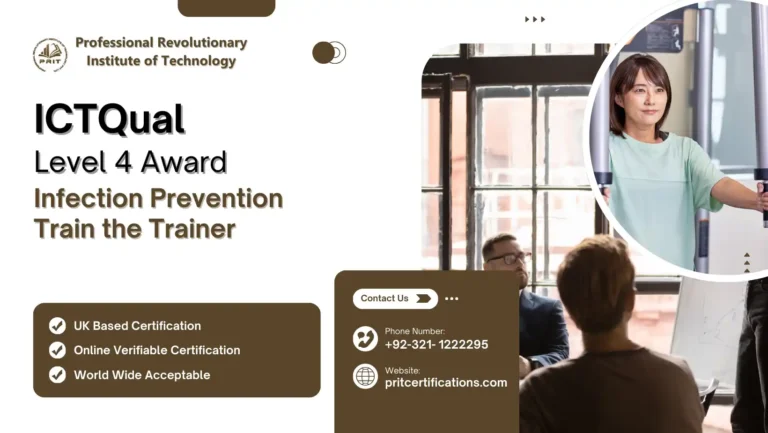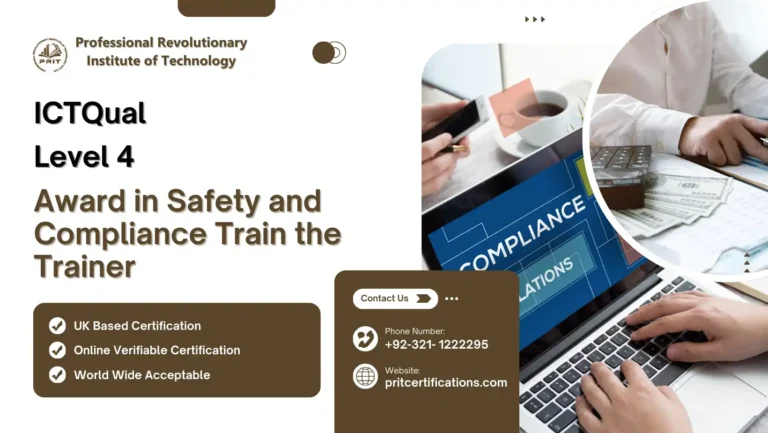
The ICTQual AB Level 4 Train the Trainer Certificate in Basic Life Support (BLS) Training is a globally recognized qualification designed for healthcare professionals, first aid instructors, and safety practitioners who aspire to become certified trainers in Basic Life Support. This program focuses on equipping trainers with the essential teaching methodologies, assessment techniques, and practical facilitation skills required to deliver high-quality BLS training.
Basic Life Support is a critical skill that saves lives in emergency situations such as cardiac arrest, choking, and respiratory failure. As the demand for qualified trainers continues to grow in healthcare, education, corporate, and industrial sectors, this certificate ensures participants are well-prepared to design, deliver, and assess effective BLS training programs aligned with international standards.
This course not only covers advanced teaching principles but also emphasizes ethical considerations, compliance with healthcare regulations, and the ability to facilitate hands-on simulations with accuracy. Graduates will gain the expertise to confidently train others in BLS, ensuring that learners acquire both theoretical knowledge and practical skills to respond effectively in life-threatening scenarios.
Ideal for medical professionals, first aid trainers, and safety educators, this certification enhances career opportunities, professional recognition, and the ability to contribute significantly to workplace and community health and safety.
Course Overview
Qualification Title: ICTQual AB Level 4 Train the Trainer Certificate in Basic Life Support (BLS) Training
Regulated by: ICTQual
Guided Learning Hours (GLH): 120 hours
Credits: 40
Level: Level 4 (Professional Level)
Course Study Units
Mandatory Units:
- Principles of Teaching Basic Life Support (BLS)
- Curriculum Design and Lesson Planning for BLS Training
- Assessment Methods and Evaluating Learner Competency
- Quality Assurance and Standardization in BLS Training
- Facilitating Practical Demonstrations and Simulations
- Ethical Considerations, Compliance, and Professional Development in BLS Training
Course Learning Outcomes
1. Principles of Teaching Basic Life Support (BLS)
- Apply adult learning principles in BLS training.
- Deliver BLS content with clarity, accuracy, and engagement.
- Adapt teaching methods to meet learner needs.
2. Curriculum Design and Lesson Planning for BLS Training
- Develop structured lesson plans for BLS training.
- Align training content with international standards and protocols.
- Incorporate practical and theoretical components effectively.
3. Assessment Methods and Evaluating Learner Competency
- Implement various assessment methods to test learner competency.
- Provide constructive feedback and identify learner improvement areas.
- Maintain assessment records in line with quality standards.
4. Quality Assurance and Standardization in BLS Training
- Apply quality assurance measures in training delivery.
- Ensure consistency and compliance with healthcare training standards.
- Monitor and evaluate the effectiveness of training programs.
5. Facilitating Practical Demonstrations and Simulations
- Conduct safe and effective BLS practical demonstrations.
- Supervise learners in simulated emergency scenarios.
- Assess practical skills against international benchmarks.
6. Ethical Considerations, Compliance, and Professional Development in BLS Training
- Adhere to ethical and legal responsibilities in training.
- Promote compliance with healthcare and workplace safety regulations.
- Engage in continuous professional development as a BLS trainer.
Entry Requirements
- Minimum age: 18 years.
- Basic proficiency in English communication.
- Background in healthcare, first aid, or related fields preferred.
- Commitment to training and promoting life-saving skills.
Course Benefits
- Earn an internationally recognized BLS trainer certification.
- Gain expertise in both technical and instructional aspects of BLS.
- Enhance career opportunities in healthcare, corporate, and academic training environments.
- Develop leadership, supervision, and assessment skills.
- Contribute to community health and workplace safety.
Why Choose This Course
- Recognized globally for quality and professional standards.
- Combines medical knowledge with advanced training methodologies.
- Suitable for healthcare professionals and aspiring trainers.
- Opens pathways for international employment and recognition.
Who Can Enroll in This Course
- Doctors, nurses, and paramedics.
- Safety officers and first aid trainers.
- Corporate and community health educators.
- Individuals seeking a professional trainer role in BLS.
Future Progression
- Advance to higher-level trainer qualifications in healthcare and safety.
- Pursue certifications in Advanced Life Support (ALS) and specialized emergency care training.
- Progress into roles such as BLS Training Coordinator, Safety Training Manager, or Healthcare Instructor.
- Expand career opportunities in international healthcare, education, and training sectors.






